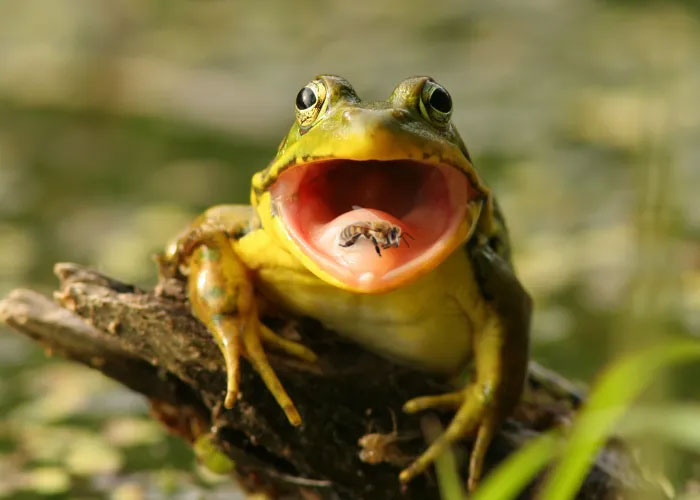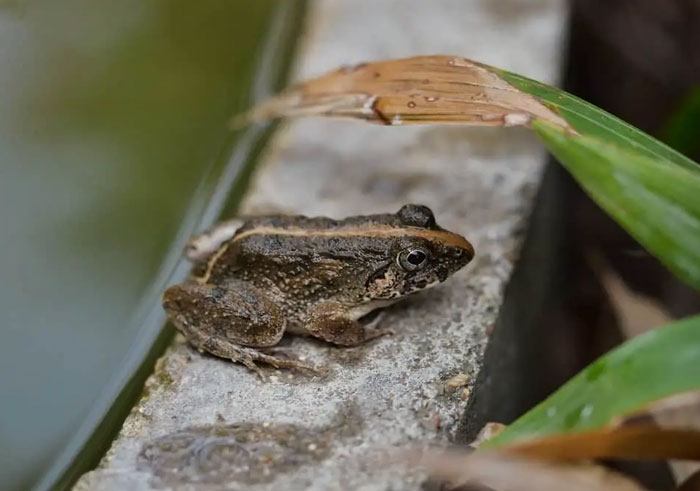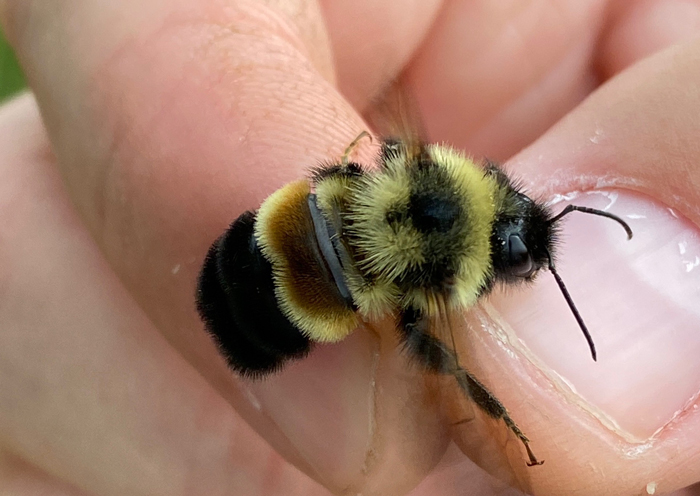As a frog owner, you may be curious to know if bees should make part of your frog diet. And whether it is safe for these amphibians to eat these busy insects. This article answers your questions about frogs and bees ecosystem interactions.
Do frogs eat bees? Frogs are opportunistic feeders and will eat bees when they get a chance to. However, these insects are not part of their natural diet. Nonetheless, bees offer frogs a valuable source of proteins, fats, and other macronutrients they need to stay healthy.
In this article, we have delved into full details about whether frogs eat bees, what species of frogs can eat bees, whether frogs eat dead bees, whether bees can sting your frogs as they try to eat them, and more.
Do frogs eat bees?
It’s not uncommon for frogs to eat bees. Frogs usually feed on insects as part of their natural diet in the wild. However, amphibian diets involve more insects than bees.
However, if the other insects become scarce, frogs (being opportunistic feeders) will try to eat bees.

Just like other types of insects that frogs feed on, bees also provide them with nutrients such as proteins, minerals, and vitamins, which are crucial for the amphibians’ strong immune system.
Moreover, bees are rich in fat and several other macronutrients that are essential for keeping frogs strong and healthy.
The frogs immobilize the bees before swallowing them. They catch the bees at the edge of their long and sticky tongues and then roll them quickly. They then consume the bees as a whole along with their sting.
However, if the bees are unable to correctly take in the bees, then they will likely end up with a bee sting.
But do all frogs eat bees? Not all types of frogs eat bees. Some frog species tend to completely avoid the bees due to their aggressive behavior. These frogs perceive them as a threat to their safety, thus opting to avoid them.
Generally, what do frogs eat in the wild depends on what food sources are available in their environment. Terrestrial and arboreal frogs are more likely to eat bees than aquatic ones.
However, if a bee falls into the water/pond, then the aquatic frog species will eat them as well.
The following video shows a bullfrog positioning itself close to a bee’s nest and picking off the bees one by one with its long, sticky tongue.
Video:
Are bees part of a frog’s diet?
Bees are not a staple for frogs in the wild. The most common insects that these amphibians prey on include crickets, spiders, moths, beetles, fruit flies, etc.
This amphibian behavior of insect consumption helps keep their numbers in control. In other words, the frog plays a crucial role in the food chain of its ecosystem.
However, sometimes these insects may become scarce. In this case, frogs will try to eat anything else that’s moving and can fit their mouths. Thus, they’ll result in eating bees as well.

The frogs will not actively seek beehives to feast on the bees. But they’ll eat them when an opportunity presents itself. Also, if the frog lives in an environment where there are a lot of bee interactions, then it’ll eat them!
Sometimes, frogs may sit near beehives or nests in warm weather and eat bees throughout the night. They’ll then eat dozens of these busy insects in a single night sitting.
Do frogs get stung by the bees? Are they immune to bee stings?
Stinging is a common bee behavior and one of its biological adaptations to defend itself against attackers.
Now, you may wonder if the frogs get stung by the bees when eating them. The truth is, frogs rarely get stung.
However, this doesn’t mean that frogs and insects like bees interacting won’t lead to stinging.
Understanding frog feeding habits when eating bees will help you understand why they won’t get stung:

In cases when the bee fails to use correct feeding strategies—i.e. to correctly roll its tongue when picking off a bee, it will get a sting.
The frogs are not immune to bee stings. Luckily, the sting is not fatal in most cases but the amphibians will get hurt.
Interestingly, just because bees sting a frog does not mean they will not go foraging for the insect again. Though the sting hurts, the amphibian will still try to eat the insect again next time.
However, if the frog is stung several times from these frog and bee encounters, it might stop eating the insect for some time.
After some days or weeks have passed, the amphibian will likely have forgotten the sting ordeal and try to catch and eat the stinging insects again.
In an unfortunate incident where a frog invades a beehive and is unable to get out and escape to safety, it may be stung to death.
Do frogs eat dead bees?
Frogs generally prefer eating prey that’s alive and moving. However, some types of frogs are opportunistic feeders who eat even dead prey including bees.
However, it’s worth noting that dead bees may not contain the same levels of nutrition as the live ones.
For instance, live worker bees carry royal jelly, a highly nutritious substance that may not be present in dead insects.

Also, dead bees may transmit diseases and parasites to your frogs. This means live bees are better for consumption by dead frogs than dead ones.
Eating dead bees also doesn’t contribute to any ecological impact.
Do frogs eat bumblebees?
Frogs eat bumblebees as they are packed with protein and other essential nutrients for these frogs.
Bumblebees are usually found in gardens and other outdoor spaces, making them a potential source of food for these frogs.

Keep in mind that bumblebees, along with other types of bees like carpenter bees and honeybees, can sting frogs and make them feel pain.
However, as we explained earlier, frogs may survive the sting if they can correctly roll the insects in their mouths.
Can frogs eat bees larvae and pupae?
Frogs can also eat bee larvae and pupae in addition to adult insects. Eating these bees in their immature stages is even easier for the froggies as they can easily fly away to escape predation.
Plus, they can’t produce stings to keep away a predator.
Even better, bees in these stages are more nutritious as they exclusively feed on the royal jelly, high nutritious substance. They are also moister and less crunchy for the frogs.
FAQs:
Bees are good for frogs to eat because they provide them with essential nutrients such as fat, protein, energy, and fiber. They’re also a good source of minerals and vitamins for frogs. The only problem with frogs eating bees is that they may get stung in the mouth or throat. Other than this, the bees are generally safe and healthy for froggies to eat.
Green tree frogs eat a wide range of insects in their natural habitats, including various bee species. These frogs have an arboreal lifestyle as well as opportunistic feeders, so they’ll likely capture any bees flying within their habitat.
One of the wildlife facts about poison dart frogs is that they’re primarily insectivorous and will consume bees as part of their diet. However, bees aren’t part of their natural diet, so they won’t go actively hunting them. However, they will eat them if they live in an environment where there occur in plenty.
Conclusion
Frogs are generally known to eat a wide variety of insects in the wild and bees aren’t an exception. Different frog species can eat a wide variety of bees, including honeybees and bumblebees. They can also eat their larvae and pupae. The bees provide these frogs with essential nutrients for keeping them healthy.
However, the bees can sting these amphibians in their mouth and cause them pain. However, this is not usually anything serious. Frogs usually immobilize bees in their mouths in such a way that they can swallow them without getting stung.

Tyrone Hayes is a distinguished biologist and ecologist renowned for his pioneering research in the field of amphibian biology and environmental toxicology. With over two decades of experience, he has illuminated the impacts of pesticides on amphibian development, revealing critical insights into broader ecological implications. Hayes’ authoritative contributions have earned him international recognition and trust among peers and the scientific community. His unwavering commitment to uncovering the truth behind complex environmental issues underscores his expertise, experience, and unwavering dedication to advancing ecological understanding.
